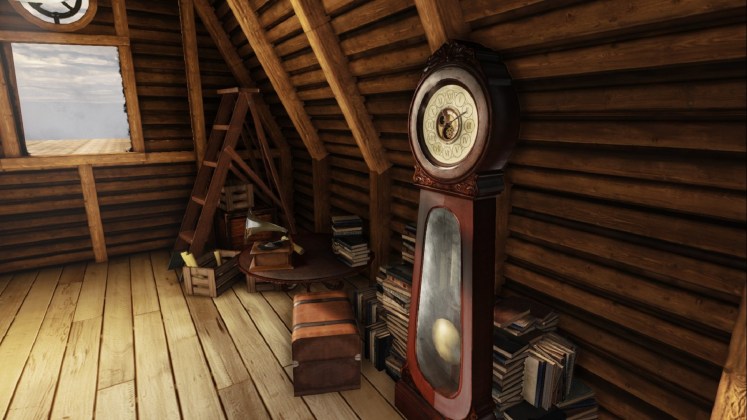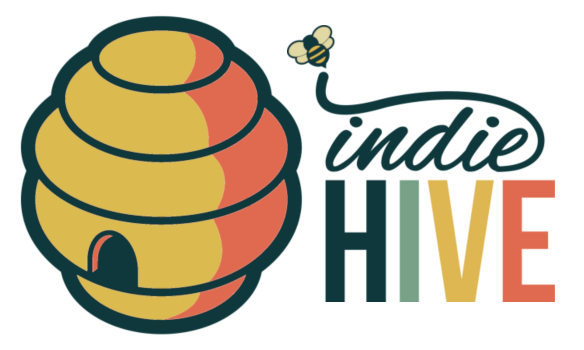What Never Was: Chapter Two announced!
What Never Was is a short, story-driven, exploration and puzzle game, with point-and-click and walking simulator style mechanics. It was created using Unreal Engine, released on 11th January 2019 and is available free on Steam and itch.io. The game is enjoyable, has a delightful narrative and has been deservedly well received – you can read Indie Hive’s review here.
It is the first project by developer Acke Hallgren and following a successful first month, he announced the exciting news that work would be starting on the next instalment.
Developer Interview
On hearing the announcement I was keen to find out more about what inspired the decision and what we can expect from the second chapter of What Never Was. I was thrilled when Acke agreed to an interview and asked him the following:
– How did you first get into game development?
I’ve always loved games but never thought it was a viable career, so I was studying graphic design when my dad found a newspaper article about a newly started school for video game making called The Game Assembly in Malmö, Sweden. I had just finished a visual design-education but felt like this might be my shot, so I spent two additional years studying Game Art.
Throughout the education, we had to collaborate with the programmer class to make small game experiences every ten weeks with increasing ambition and complexity, and while I focused on art, I often found myself veering towards working on the games as a whole, connecting the dots or building whatever needed to be built. The last half year of the education consisted of an internship at a studio, which I did at Ubisoft Massive which in turn lead to a Level Designer position on The Division. So short answer, a little bit of luck, a little bit of determination and a love for the craft, however pretentious that might sound.
– How did you find working on your first solo project differed most from your previous experience as a developer?
It differs a lot. I’ve worked on both AAA studios and indie, but with my own project, I have full and complete say as to what goes into the game and what doesn’t, which in many ways is great. I very much love closing the loop on a project and really enjoy grasping the full width of it and the thematic aspects of a story, which you rarely get to work within a wider perspective when working within a huge team, solely with level design or game design. It’s different beasts, and there’s a lot to love in both situations, but I would not be as aware of the many pitfalls that I avoided (and fell into) with the project had I not spent a couple of years in the industry.
– What was the biggest challenge you faced when making What Never Was?
Well ironically the best thing about deciding everything myself is also the worst thing with the project. As a level designer at a studio I can go “This is a big round room used for combat, the artists will have to figure what it is later” (which they amazingly always manage to do, beyond what one dared to dream) but when you’re working alone you can definitely push a problem ahead, but in the end you’re going to have to deal with it, because you are all of the departments.
The whole thing started as a 3D environment so that I could keep my art-skills in shape, but since I do like having context I made up a small story in my head of an old-school point and click game that could be using these assets and this setting. When putting it all into Unreal I found it pretty easy to set up rudimentary first-person gameplay controls, and since I had that, why not make a desk-drawer openable? And it snowballed from there. But had I known that I would actually be making a game, the attic would probably look very different. At a certain point, I felt like I had to go with what I had so that I could move forward and bring those lessons learned to the next project, whatever that would be.
The Unreal Engine has really been a tremendous tool for making this game, but again, whenever I’d find myself wanting to create something new for the game or whenever something would stop working, it can suddenly mean that you have to take a step back and learn something new from scratch. The instinct to call someone with specific expertise over to help you is there from having had the luxury, and it can suddenly feel like you’re stranded on an island, but of course, online tutorials and the Unreal forums gets you a long way too.
Lastly, I’d say finding time and energy is tricky. There are months when you’re really into it and can work on it for hours after a full day, and full half-years where you barely touch it because life gets in the way.

– Were you expecting the game to be so well received?
Not in a million years. I put it up on Steam for myself mainly, so that I could feel like it really was done, and also to see it through from all processes of making a micro-game – even publishing, so the fact that so many people would play it and enjoy it is humbling, and somewhat of an unknown dream come true.
– What made you decide to continue with the project and are you hoping to produce multiple episodes?
I had jokingly said to myself that I would finish this first level or episode, and then way later in life, when I fell over a bunch of money and started my own studio, I would make the full thing. I was actually starting to write the outline of a completely different game just before the release, but the love and support for this game and Sarah’s story which I’ve carried with me for a couple of years now poured in, I couldn’t help but consider the fact that I now have the framework for more content, and with fresh eyes it’s an interesting challenge to see how far I can take it. I will work on it episode by episode and simply see how far it takes me. I will take one chapter at a time, but the idea is to make several of them so that I can control one piece of the narrative at a time.
– Where did you get your inspiration for the game’s narrative and was a bigger story already envisaged when the 1st episode was released?
As for the narrative and thematic inspiration, I really love “Spielbergian” adventure films like Indiana Jones, Hook or Back to the Future. The lighthearted and wholesome type of adventures filled with mystery, wholesomeness and the right amount of cosy nostalgia. My biggest love growing up was Star Wars, where these themes also ring true. Game-wise I used to love point-and-click games – particularly The Longest Journey – and while I think the “walking-sim” genre could stand to be a bit more interactive, I love that games have found a way back to telling a story without having to put combat or huge worlds into them again.
And yes, at least the broad strokes of the story was set from the very beginning, although not everything is completely solidified or might change due to my technical limitations or whatnot.

– Will you be using the same team as you did for episode one?
Most if not all have agreed to help out given that they have time, so yes! Depending on how I scope my ideas I might need expertise in new disciplines as well, and it’d be nice to not also have to write all the music this time, so we’ll see!
– Can you offer any information regarding production and scheduling? (When can we see it?)
Just like what is already released, this will be worked on during weekends and evenings when I have both the time and the energy, so, unfortunately, we will simply have to wait and see – myself included. I’d love to estimate but knowing how these things play out I’d prefer to come back with estimates when I have something to go on. I hope to see that it takes less time since the concept and gameplay of the game is already set but I also hope to make a longer and grander experience than the last, so we’ll see.

You can read our review of What Never Was and if you’d like to find out more about what’s in store and support the development ofChapter II here.


